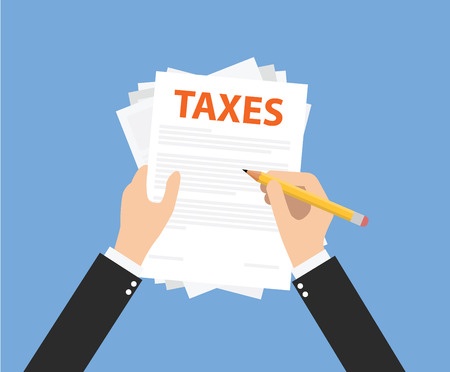Parental Trusts for Children
 There’s a common misconception that parental trusts for children are a separate type of trust in their own right.
There’s a common misconception that parental trusts for children are a separate type of trust in their own right.
This is not the case, though there are some notable differences between standard examples of the following trusts and those that are set up by parents for their own children under eighteen who have never been married or in a civil partnership.
Parental Trust Income Deemed as Settlor Income
For each of the below trusts, if all assets in a child’s trust equate to less than £100 per parent then the child’s trust income doesn’t count as the settlor’s income for income tax purposes.
For trusts that produce over this amount the entirety of the child’s income from the trust is deemed to be the settlor (parent’s) income for income tax purposes. In most cases the trustees pay the income tax on income from the trust by filling out a Trust and Estate Tax Return, then they give the settlor a statement containing all the income paid and the rates of tax charged on it (for a detailed definition of trustees and their responsibilities, see our recent article on the topic). The settlor is then required to account for the amount of tax the trustees have paid on their behalf through their Self Assessment tax return.
Types of Parental Trusts for Children
Parental trusts for children under eighteen who have never been married or in a civil partnership will be either a:
Bare Trust
Though not their primary function, as with all the trusts here, bare trusts are commonly used to pass money and assets down to children under eighteen. While the assets within a bare trust are held in the name of a trustee, the beneficiary (the child) has the right to access all capital and income from the trust once they turn eighteen.
Interest in Possession Trust
Different from bare trusts, except for the standard prerequisite that no child under eighteen can receive any income or assets from the trust until they reach the age of eighteen, an interest in possession trust differs in that once the child reaches this age the trustee must pass on all income from the trust to the beneficiary (child) as it accumulates.
Accumulation Trust
Accumulation trusts allow the trustee to accumulate income inside the trust and add this amount to the trust’s overall capital. It’s also possible, in most cases, for the trustee to pay income out of an accumulation trust in a similar fashion to discretionary trusts…
Discretionary Trust
Discretionary trusts for children allow the trustees to make decisions surrounding how the trust income (and occasionally the trust capital) is used. The trustees can decide on a number of things for the beneficiary (child), including what gets paid out, how often these payments are made, and which beneficiary to pay when, if there is more than one beneficiary.
Experienced Trust Accountants
To speak with a professional accountant to discuss which parental trust is right for you and your child, or for anything else, contact us today on 020 8780 2349 or get in touch with us via our contact page to arrange a complimentary, no obligation meeting.
Making Tax Digital: Welcome Change or Worrying Burden?
 The government’s Making Tax Digital plan was first touched upon during Budget 2015, then again in December of last year when they launched the ‘Making Tax Digital Roadmap’ in an effort to explain how their plan to turn HM Revenue and Customs (HMRC) into one of the most “digitally-advanced tax administrations in the world by 2020,” would be achieved.
The government’s Making Tax Digital plan was first touched upon during Budget 2015, then again in December of last year when they launched the ‘Making Tax Digital Roadmap’ in an effort to explain how their plan to turn HM Revenue and Customs (HMRC) into one of the most “digitally-advanced tax administrations in the world by 2020,” would be achieved.
But the question remains, despite all of the government’s assertions that Making Tax Digital will reduce the taxpaying burden for all individuals (small business owners, employed individuals with other income, retired individuals, and more), should this be seen as a welcome change for taxpayers or indeed a worrying burden?
With the consultation period on these changes due to run until 7 November of this year, here at Tax Agility we’ve looked at what Making Tax Digital may mean for you, and how we can help you to navigate these changes.
Who is Affected
If you’re a small or medium-sized business (SME) owner, self-employed, or a landlord with turnover over £10,000 per year, you will be affected by these changes. This last point refers to all landlords making over £10,000 per year (gross), even if you’re in full-time employment and you just rent out a property on the side.
There are also edge-cases that will also be affected, such as pensioners whose pension exceeds their personal allowance.
What is Required
If you’re affected by Making Tax Digital you will be required to have a digital tax account through which you will report your accounts to HMRC every three months (once a quarter) under standard categorised headings (sales, expenses, etc).
This will no doubt be a burden, as despite what the government wants to think tax is not at the forefront of most people’s minds on a day-to-day basis; that’s what accountants are for. That said, the government is correct in its assumption that more frequent reporting by those who don’t work alongside an accountant will help to keep them on top of their tax liabilities.
Is Big Brother Watching?
Though there’s really no need to be paranoid, especially if you have nothing to hide, this is a fair question and one that’s come up consistently since the government announced their ‘Making Tax Digital Roadmap’ back in December of last year.
It’s certainly true that the more we use our smartphones, tablets, and laptop computers to digitise our records and store them in ‘the cloud’ the more opportunity there will be for this data to be used against us should it get into the wrong hands. And for those of us who grew up before the computerisation of everything, the idea of taking photographs of our receipts and uploading them to the internet can seem somewhat daunting. But from working with computerised accounting software here at Tax Agility for many years we can tell you that so long as you’re sensible, computerised software is both safe and convenient.
Experienced Tax Accountants
To speak with a professional accountant to discuss the government’s upcoming Making Tax Digital changes, or for anything else, contact us today on 020 8780 2349 or get in touch with us via our contact page to arrange a complimentary, no obligation meeting.
Contractor Tax Changes and How They Affect You
 After all the goings-on of the last six weeks, Budget 2016, which took place in the middle of March, seems a lifetime ago.
After all the goings-on of the last six weeks, Budget 2016, which took place in the middle of March, seems a lifetime ago.
Despite this, and despite the fact that then-Chancellor of the Exchequer George Osborne has since been replaced by Philip Hammond at the hands of new Prime Minister Theresa May, all of the tax changes (or upcoming tax changes) for contractors that were underlined by Mr. Osborne at Budget 2016 still hold the same weight as they did before the Brexit vote.
Contractor Tax
For a more detailed look at the ins and outs of Budget 2016, you can read our key takeaways for contractors, companies, and individuals. For now, here are five of the most important contractor tax changes you should be thinking about right now:
Capital Gains Tax (CGT) Reduced to 20%
In a huge boon to tax payers across the income spectrum, from April this year CGT was reduced from 28% to 20% for higher rate tax payers, and from 18% to 10% for basic rate tax payers. This change doesn’t apply to gains made from residential property however, which remains at its former rates.
Travel and Subsistence Tax Relief Scrapped for Some Contractors
With contractors facing the prospect of mandatory IR35 testing from April 2017, Travel and Subsistence tax relief between your home and your working location was scrapped in April for temporary contractors working through intermediaries, such as umbrella companies. Contractors whose work doesn’t fall under IR35 may still claim the relief.
Contractor Class 2 National Insurance Contributions Discontinued
Though the details are still somewhat cloudy, what we do know is that from 2018 Class 2 National Insurance Contributions for contractors will be discontinued, potentially saving contractors making a profit of £5,965 or more per year £2.80 per week. We say potentially because there’s a good chance that some, if not all, of this cost will simply be transferred to your new Class 4 National Insurance Contributions.
£1,000 Allowance for ‘Sharing Economy’ Workers
Touched upon in detail five months ago, with the government having recently recognised that traditional taxation methods don’t work for new-age contractors who are earning small and one-off payments as part of the sharing economy, a new tax-free allowance of £1,000 a year is to be introduced for those earning income through both through trade and property (Airbnb hosts rejoice).
Removal of National Insurance Employment Allowance
In a topsy-turvy turn of events, the withdrawal of the National Insurance Employment Allowance for contractors acting as single-person companies is set to go ahead, while Entrepreneurs’ Relief for multi-owner companies is set to be restored. Entrepreneurs’ Relief will also be offered to external investors in unquoted companies, though the details of this arrangement are still being consulted on.
Experienced Contractor Accountants
To speak with a professional accountant to discuss how these tax changes may affect you as a contractor, or for anything else, contact us today on 020 8780 2349 or get in touch with us via our contact page to arrange a complimentary, no obligation meeting.
Experienced Accountants & Other Advisers Benefit SME Owners
 If you’re a small or medium-sized business (SME) owner you may find that you can benefit by working alongside experienced advisers who have been there, done that (whether for themselves in the past, or for other clients) and can help you navigate the choppy waters of business.
If you’re a small or medium-sized business (SME) owner you may find that you can benefit by working alongside experienced advisers who have been there, done that (whether for themselves in the past, or for other clients) and can help you navigate the choppy waters of business.
You don’t have to do everything on your own. Even if you’re in a partnership (or you’re planning on hiring an employee very soon), running an SME can be a lonely experience, especially in the early days. For this reason, when you work with experienced advisers, whether accountants, business advisers, or human resources professionals, you’ll gain not just from their insight and experience, but also from their presence. That's why it is important to embrace such relationships with experts and once you've done the appropriate research to seek out experienced advisers, don't shy away from reaching out to them.
Get Measurable Motivation
When you work alongside an experienced adviser, whether in one particular field (such as accountancy) or in a more general role, they will give you measurable motivation going forward, even if they don’t realise they’re doing it.
For some reason we’re incredibly good at breaking our word to ourselves, but most of us find it incredibly hard to break our word to somebody else. When you’re frequently checking in with an adviser you’ll find that they make a point of asking whether you followed through with something you discussed last time you spoke - thus acting as an accountability partner and motivating you to do what you said you’d do.
Gain New, Professional Connections
Whether you’re paying them for their services or not, it’s never an advisor’s job to introduce you to their network of professional connections. With that said, an experienced advisor (including accountants) will be happy to introduce you to somebody if and when they believe such an introduction will be beneficial both to you, and to the professional in question.
This is how you build your network. It could be that your adviser knows how to personally help you with ninety percent of your queries; but when it comes to that final ten percent, advisers worth their salt will known who to introduce you to.
Delegate Elaborate, Time-Consuming Work
Most advisers, especially when it comes to the financial side of business, will offer you advice but will stop short of doing work on your behalf. Though receiving financial advice is incredibly useful, especially when you’re just starting out in business, if you require assistance in dealing with the financial side of your business you should look into hiring an experienced, professional accountant.
Professional accountants allow you to delegate the elaborate, time-consuming accountancy tasks that, up until this point, have likely been taking up far more of your time than you originally thought they would. A professional accountant will also work on your behalf to ensure you receive all the tax reliefs available to you. That said, we have an extensive bank of information on our blog that should give you more than enough information to digest before needing to take on experts fulll time.
Experienced Accountants
To speak with an accountant to discuss the benefits of handing the financial side of your business over to our experienced professionals, contact us today on 020 8780 2349 or get in touch with us via our contact page to arrange a complimentary, no obligation meeting. In the meantime, feel free to check out our services page to see what we offer in more detail.
What the Dividend Allowance Changes Mean for SMEs
Announced during last year’s emergency (summer) Budget, the proposed dividend tax changes, known as the new tax-free Dividend Allowance, are due to come into force on 6 April 2016, replacing the old Dividend Tax Credit.
Under the tax-free Dividend Allowance changes, all UK residents won’t be taxed on the first £5,000 of dividend income they receive each year, with dividend income above the new £5,000 threshold taxed at:
- 7.5% on dividend income that falls within the basic rate band
- 32.5% on dividend income in the higher rate band
- 38.1% on dividend income in the additional rate band
It’s important to keep in mind that these changes will not affect dividends received via tax-exempt pension funds, as well as dividends you have received on shares in an Individual Savings Account (ISA), as is the case now.
Impact on Small Business Owners
Designed to tax small businesses who purposely pay their owners and executives a small salary (in order to secure their access to the State Pension), with the bulk of their income coming in a larger dividend payment, the government has marketed these changes as a boon for the majority of the population: a £5,000 Dividend Allowance, on top of the current £11,000 personal allowance, sounds rather attractive after all.
However, the impact of the proposed dividend tax changes on small and medium-sized business (SME) owners has the potential to create a negative affect on small business bottom line’s across the country.
In an online petition created under the title “Reconsider the new Dividend Tax for small businesses,” petition creator Frauke Golding noted that:
“The Government have stated that business is going to be at the heart of their programme for the next 5 years. Small businesses make up 99.3% of all private sector businesses and we provide just under 50% of all private sector jobs. There is a real danger that this new tax, along with auto enrolment and minimum wages increases, will have a significant effect on those people brave enough to start up a business that could make a meaningful contribution to the economy and jobs market.”
In response to Mr. Golding’s petition, which at time of writing has received 46,627 of the 100,000 signatures it needs to be considered for debate in Parliament, HM Treasury commented in defence of the dividend tax change, noting that “The Government is fully committed to supporting business and entrepreneurship,” before launching into three paragraphs that touched upon the government’s desire to reduce Corporation Tax from 20 to 18 percent by 2020, as well as a rundown of the benefits small business owners are also soon to receive:
“Owners of small companies will also benefit from a range of other measures announced at the Summer Budget, including an increase in the National Insurance Employment Allowance to £3,000 from April 2016 and a permanent increase to the Annual Investment Allowance to £200,000 from January 2016. They will also pay less tax as a result of the increases to the tax-free Personal Allowance to £11,000 and to the Higher Rate Threshold to £43,000 in April 2016.”
Our Advice
In light of the tax-free Dividend Allowance coming into force on April 6, our advice for small business owners is to take some time to look through the numerous examples the government provide in their Dividend Allowance factsheet to get an understanding of whether you will be better or worse off as a result of the change. For more information on governement changes and the effects they have on you or your business, have a read of our pieces on the following:
Budget 2016: Key Takeaways for Contractors
Budget 2016: Key Takeaways for Companies
Budget 2016: Key Takeaways for Individuals
If that's not enough, we have a wealth of information on our blog too.
For personalised advice to this effect, we encourage you to contact your tax adviser.
Experienced Tax Accountants
To speak with a professional accountant to discuss the tax implications of the new tax-free Dividend Allowance, or for anything else, contact us today on 020 8780 2349 or get in touch with us via our contact page to arrange a complimentary, no obligation meeting.
Budget 2016: Key Takeaways for Companies
Following on from this morning's summaries on the key talking points from Budget 2016 for individuals and contractors, below we’ve summarised the key talking points for companies from Chancellor of the Exchequer George Osborne’s eighth full Budget.
Focusing on small and medium-sized businesses (SMEs), this is the final part in our article series on Budget 2016. To speak with us directly about this year’s Budget, or for anything else, our contact details are at the end of this article.
New Stamp Duty Rates for Commercial Properties
Coming into effect at midnight on 17 March/last night, the new stamp duty rates for commercial properties represent a complete overhaul in the way in which stamp duty on freehold commercial property and leasehold premium transactions is calculated.
A boon for small and medium-sized business (SME) owners, under the new rules instead of stamp duty rates applying to the whole value of a commercial property, Mr. Osborne described how the new rates and tax bands will result in a 0% stamp duty rate for commercial property up to the value of £150,000, with a 2% rate applying for the portion of a commercial property’s value between £150,001 and £250,000, and a 5% rate applying for the portion above £250,000.
Business Rates Abolished for Properties With Value up to £12,000
We touched upon this in our key talking points for contractors summary, though it’s more relevant for companies than it is contractors. One of the biggest talking points from Budget 2016 was that of business rates being abolished for all business (commercial) properties with a rateable value up to £12,000, from April 2017. There will also be a ‘tapered’ relief rate on properties between £12,001 and £15,000.
With the current relief rate set at just £6,000, this poses a hugely beneficial increase for small businesses and contractors working from a commercial space. The government estimate that under the new rules 600,000 small businesses will pay no rates at all.
Employers to Pay National Insurance Contributions on Pay-Offs
If you have taken on employees at your SME, from April 2018 you will need to pay National Insurance Contributions (NICs) on any pay-offs (typically employee termination payments) you make above £30,000.
As is currently the case, should you have to make an employee’s position redundant that employee can receive a pay-off from you of up to £30,000 without you or they having to pay NICs on that amount.
Corporation Tax to Reduce to 17% by 2020
Though it’s a little while off yet, at yesterday's Budget the Chancellor announced that Corporation Tax is due to drop from 20% to 17% by 2020.
Should this reduction come to fruition it will mark a particularly low Corporation Tax rate, given that it was 28% when the Conservatives came to power in 2010. At it’s current rate of 20%, the UK has the lowest Corporation Tax rate in the G20.
Understanding Budget 2016
To speak with a professional accountant to discuss the impact of Budget 2016 on your company, or for anything else, contact us today on 020 8780 2349 or get in touch with us via our contact page to arrange a complimentary, no obligation meeting.
If you're an individual or contractor, you needn't go to the trouble. Check out our pieces that are best suited to you:
Budget 2016: Key Takeways for Contractors
Budget 2016: Key Takeaways for Individiuals
3 Ways to Make Tax Efficient Charitable Donations

We all want to receive greater tax efficiency out of our charitable giving; both for the charity, and for us. There are three main ways in which you can make tax efficient charitable donations with either you or them being able to claim tax relief on your donation, these being when you:
- declare (using an appropriate form) that you would like Gift Aid to be added to your donation,
- donate through a Payroll Giving scheme set up by your employer, and
- donate land or certain shares to a charity that agrees to accept your donation.
Gift Aid
Gift Aid is the simplest, and most common, way in which individuals and businesses alike can make tax efficient donations to charity. If you’re a British taxpayer, the Gift Aid scheme allows the charity you’re donating to to reclaim basic rate tax on your donation from HM Revenue and Customs (HMRC), thus increasing the overall value of your donation.
Your donation will only qualify for gift aid if you:
- pay at least as much income tax in a given tax year as the charity (or charities) will reclaim (if you don’t pay income tax, you cannot take advantage of the Gift Aid scheme),
- don’t receive excessive benefits, in any form, for your donation,
- make a Gift Aid declaration (using an appropriate form) that you would like Gift Aid to be added to your donation.
It should be noted that Gift Aid donations can be backdated up to four years. As we wrote in this article from last year, “It’s been suggested that the current declaration form doesn’t make the link between the tax the individual making the donation has already paid and the Gift Aid that can be claimed by the charity they’re donating to; something the upcoming improvements are sure to address.”
Payroll Giving
Donating to charity through a Payroll Giving scheme is a great way to give to charity every time you’re paid by your employer.
In order to make a gift to charity through a Payroll Giving scheme your employer must have already set up the scheme with their business, and you must authorise your employer to gift a certain amount from your pay every month (or however often you’re paid) to a Payroll Giving agency that’s been approved by HMRC. It’s this agency that will then send your gift on to your chosen charity (or charities).
The main benefit of donating to charity through your employer’s Payroll Giving scheme is that your donation is deducted from your pay before the tax you owe is worked out: therefore you receive immediate income tax relief at your current (basic, higher, or additional) tax rate.
For more information on payroll, click here.
Donating Land, Shares
If you decide you’d like to donate land or certain shares to charity, the first thing you need to do is contact the charity (or charities) in question to make sure they are able to accept your donation.
Next you’ll have to ensure that the land or shares you’re looking to donate qualify for tax relief. This is where you’ll want to speak with your accountant in relation to your specific circumstances, but in general the following donations qualify:
- freehold interests in land,
- leasehold interests in land (so long as the lease period is for a term of years absolute),
- shares and securities listed or dealt on the British stock exchange, or recognised overseas stock exchanges,
- holdings in recognised foreign collective investment schemes.
Keep in mind, if you donate any land to a charity it’s essential that they present you with a certificate proving that they have acquired the land from you in order for you to receive tax relief.
Experienced Tax Accountants
To speak with a professional accountant to discuss how you can make tax efficient charitable donations, or for anything else, contact us today on 020 8780 2349 or get in touch with us via our contact page to arrange a complimentary, no obligation meeting.
SME Taxes You Should Know About
If you’re a small or medium-sized business (SME) owner there are a few taxes that you should know about in order to stay on top of what you owe.
Though not all of the below taxes will apply to your current tax situation, it’s helpful to be aware of all that may show up during the lifespan of your business to make sure you’re not taken by surprise. If you’re not yet working with an accountant you should consider hiring one immediately, as they can keep you up to date with your tax liabilities to ensure you’re always paying what you owe, when you owe it.
Income Tax
If you run your business as a sole trader the most important (and expensive) tax you should be aware of is income tax, which you’ll have to pay on your small business’s profits in the same way that an employed person pays income tax on their monthly earnings.
You pay income tax on your business’s profits over the personal allowance, which is currently set at £10,600 per year (2015-16) for those under seventy-five. If you run your business as a limited company you’ll be required to pay income tax on any salary or dividends you receive from your company over £10,600; including income from any other job or dividends from a second company.
National Insurance Contributions
National Insurance Contributions (NICs) are paid by SME owners and employed people alike, though the method of payment is different for those running their own business.
If you run your business as a sole trader you’re required to pay two different kinds of National Insurance; Class 2 and Class 4. The former is a flat weekly rate of £2.80, unless your business’s profits are under the newly-introduced Small Profits Threshold of £5,965 per year, in which case you’ll be exempt from Class 2 National Insurance. If your small business’s profits are £8,060 or more per year you’ll also be required to pay Class 4 National Insurance, which is set at 9 percent of your business’s profits up to £42,385, and just 2 percent thereafter (2015-16). From April 2016 Class 2 and Class 4 National Insurance Contributions are to be combined.
If you run your business as a limited company and you receive a salary of £8,060 or more per year then your business will have to pay Class 1 National Insurance on your salary.
Corporation Tax
If you run your business as a limited company you’ll have to pay Corporation Tax on all profits immediately, so long as you business hasn’t previously made a loss under which Corporation Tax can temporarily be offset against.
Corporation Tax is currently set at 20 percent (2015-16). It must be paid nine months and a day after the end of your business’s accounting period; this being something your accountant will make you aware of to maximise your cash flow.
Value Added Tax (VAT)
Value Added Tax (VAT) is payable by businesses operating as sole traders, partnerships, or limited companies if you make sales that should have VAT charged on them (known as the VAT taxable turnover) of more than £82,000 per year.
If you believe you’ll have a VAT taxable turnover of more than £82,000 in the next twelve months you or your accountant should register your business for VAT as soon as possible, to ensure any necessary payments can go through on time. VAT is charged at three rates; 20 percent (standard), 5 percent (reduced), and 0 percent (zero rate).
More Information from Experienced SME Accountants
To speak with a professional accountant to discuss the taxes you’re likely to come up against as an SME owner (including business rates, not discussed here) contact us today on 020 8780 2349 or get in touch with us via our contact page to arrange a complimentary, no obligation meeting.
Alternatively, take a look at our other tax related pieces to further increase your knowledge:
Homeworking Tax Relief for Your Employees
3 Ways to Make Tax Efficient Charitable Donations
For a wealth of information on most accountancy related issues, feel free to have a read of our blog too.
Claiming R&D Relief is Now Faster and Easier

The new Research and Development (R&D) plan, which came into effect last month, has been designed to simplify the process of R&D relief claims for small and medium-sized businesses, while making an effort to increase awareness of the relief among small business owners who are already investing in this area.
With the new Research and Development (R&D) plan the government have handed a boon to small business owners who have previously been put off by the high cost of entry into spaces and sectors that require a substantial amount of research and (ultimately) product development before they can even think about turning a profit.
Financial secretary to the Treasury, David Gauke, said of the new plan:
“R&D is crucial for the long-term growth of the UK economy. Over 15,000 SMEs claimed the relief in 2013, an increase of around 19 per cent from the previous year, but we need to go further to support pioneering small businesses. That’s why we’ve published a document setting out our plans to increase awareness and make it easier for people to apply.”
Claiming is Now Faster, Easier
Here at Tax Agility we believe you should claim all the tax relief your small business is owed in order to maximise your take-home pay. The new Research and Development (R&D) tax relief is no exception.
According to government figures, the 15,000 plus small and medium-sized businesses who claimed R&D tax relief in the 2013-14 tax year received £1.75 billion in tax relief during this period, a saving that is as beneficial to British innovation than it is to the companies themselves.
For this reason alone, the government are striving to make the application process faster and easier for small business owners so they can begin investing in R&D as soon as possible, safe in the knowledge that they’re receiving the tax relief they’re entitled to. Producing an infographic entitled Making R&D Tax Relief Easier, the government outlined the four areas in which they’re working to improve access to R&D tax relief (awareness, design, understanding, and administration), alongside the ways in which they’ve achieved this this year, and the ways in which they plan to continue achieving this in the next two years.
Requirements
In order for your small business to receive the R&D tax relief you must have an annual turnover under £2 million, and you must have fewer than 50 employees.
If you meet these specifications and you wish to receive the relief for any planned (or continuing) R&D in your company’s field, you can receive advance assurance on the R&D tax relief from the government, providing you with some much needed certainty surrounding the tax you’ll be paying, and the reliefs you’ll be able to claim against it, going forward.
Experienced Tax Accountants
To speak with a professional accountant to discuss the tax implications of the new Research and Development (R&D) plan, or for anything else, contact us today on 020 8780 2349 or get in touch with us via our contact page to arrange a complimentary, no obligation meeting.
For information on further government incentives in the form of tax relief, click here.
Five Tax Saving Tips for Entrepreneurs
 Whether you’re a seasoned entrepreneur looking for your next challenge, or this is the first time you’ve traded as a start-up, when you begin a new venture you should waste no time in looking into ways in which you can save money on your tax bill at every step of the way.
Whether you’re a seasoned entrepreneur looking for your next challenge, or this is the first time you’ve traded as a start-up, when you begin a new venture you should waste no time in looking into ways in which you can save money on your tax bill at every step of the way.
Below we’ve complied five of our best tax saving tips for entrepreneurs. This list is perfect to get your new venture started on the right foot:
1) Keep Track of Your Expenses
There are few tax saving tips that will benefit entrepreneurs more in the long run than keeping track of your expenses from the very beginning (and your employees, should you have any). If you don’t keep track of your expenses from day one you’re only cheating yourself, as any expenses you fail to claim for will come directly out of your pocket.
Keep in mind that you can also claim for pre-trading expenses from up to seven years before you started your new venture, so long as the expenses are wholly and exclusively for the purpose of your new venture.
2) Gain Financing Through the SEIS
Launched in April 2012, the Seed Enterprise Investment Scheme (SEIS) makes it easy for start-ups to gain financing by encouraging individuals to support new ventures and small businesses by handing them significant tax savings in exchange for their investment.
Your start-up may also be able to benefit from the Enterprise Investment Scheme (EIS), which, though older, offers similar tax saving tips for entrepreneurs and investors alike.
3) Check if You Qualify for Research and Development Relief
If your new start-up is already paying Corporation Tax, you may be able to qualify for Research and Development Relief should you currently be undertaking qualifying revenue expenditure in a Research and Development (R&D) project that’s directly related to your start-up’s trade, or an area of trade which you’re considering expanding into.
Though it’ll never be your intention, if you make a loss during a tax year in which you’re claiming Research and Development Relief you’ll be given tax credits rather than Corporation Tax relief, credits which you can use in upcoming tax years.
4) Consider the Flat Rate Scheme for VAT
While not an obvious tax saving tip, the Flat Rate Scheme for Value Added Tax (VAT) can dramatically simplify the accounting process for your start-up while it grows.
Instead of having to write down the amount of VAT charged on every sale or purchase you make, when you opt to work under the flat rate scheme you won’t need to keep track of these figures, with you paying a flat rate of 4-14.5% overall VAT, depending on your start-up’s sector.
5) Meet With an Accountant
You don’t need to hire them, at least not right away, but meeting with a qualified, experienced accountant when you’re beginning a new venture will allow you to understand the importance of having your finances in order from the moment you start trading. You never know, they may even supply some tax saving tips on the house!
To speak with a professional accountant to discuss how you can save money on your tax bill with your new start-up, or for any other questions, contact us today on 020 8780 2349 or get in touch with us via our contact page to arrange a complimentary, no-obligation meeting.









